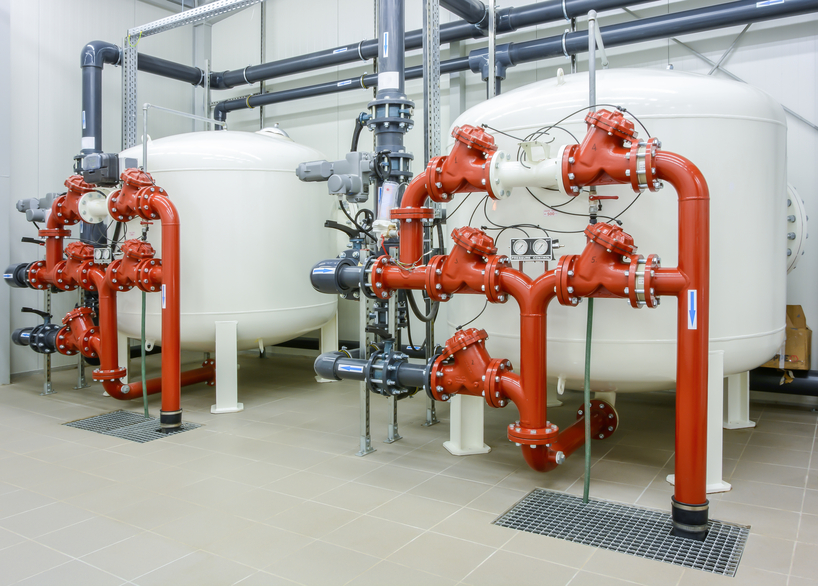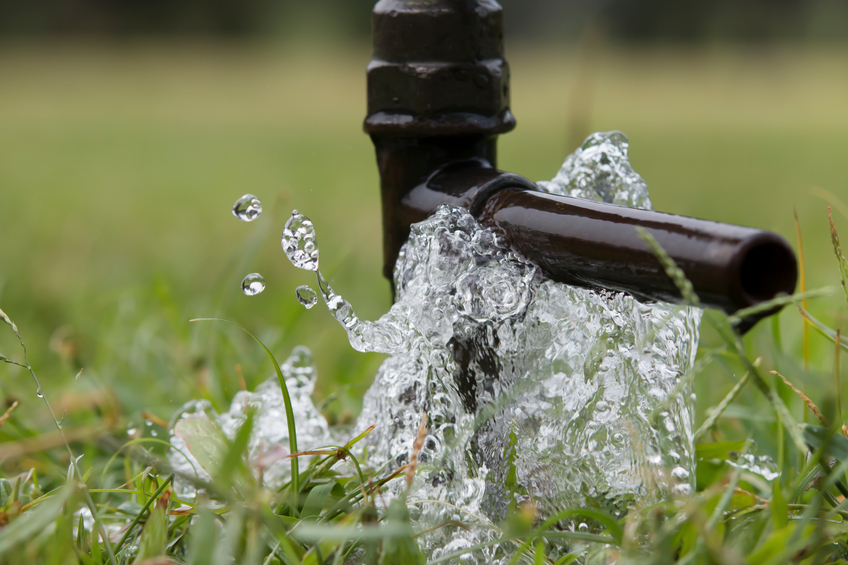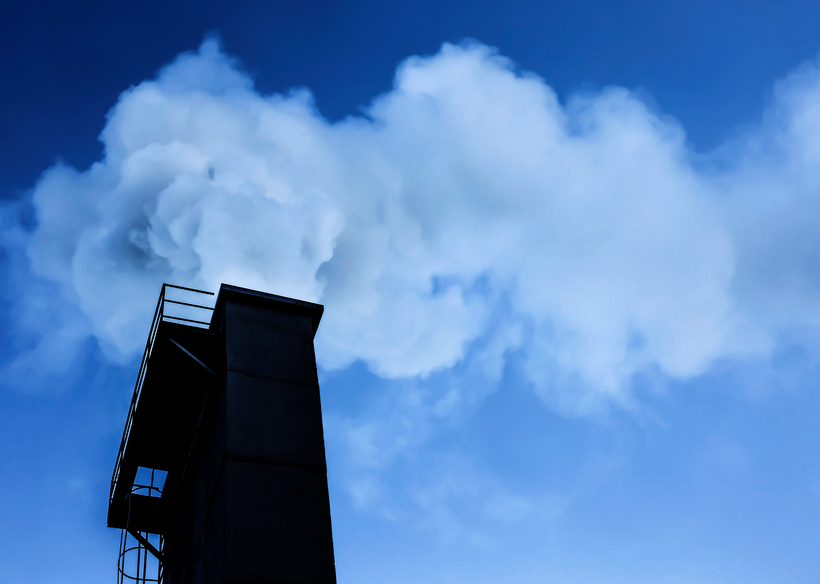Chemical and Florida Laws, Rules & Ethics 18 PDH Discount Package 2
Courses in this Package
Reactor Water Chemistry (H03-001)
Principles of Water Treatment (H03-002)
Building Field Capabilities to Respond to Drinking Water Contamination (H03-009)
Algal Indicators in Streams (H03-007)
Ozone Depleting Substances (ODS) Destruction in the US & Abroad (C04-059)
Engineering Laws, Rules and Ethics for Florida Professional Engineers (FL2-006)

This online engineering PDH course describes the chemical measures taken to retard the corrosion often found in water systems. It also addresses the consequences of radioactivity on facility cooling water systems.
Radiation synthesis is a process that takes place in the reactor coolant system. This phenomenon is limited to the reactor coolant system because of the high flux (radiation) levels that exist in the core region and further complicate chemistry control of the reactor plant.
This 3 PDH online course is applicable to chemical engineers, design and construction personnel, technical staff and facility operators who are interested in gaining a better understanding of the reactor water chemistry.
This PE continuing education course is intended to provide you with the following specific knowledge and skills:
- Understanding water chemistry parameters
- Understanding the effects of radiation on water chemistry
In this professional engineering CEU course, you need to review Module 3, "Reactor Water Chemistry" of the Department of Energy Publication DOE-HDBK-1015/1-93, "Chemistry".
Upon successful completion of the quiz, print your Certificate of Completion instantly. (Note: if you are paying by check or money order, you will be able to print it after we receive your payment.) For your convenience, we will also email it to you. Please note that you can log in to your account at any time to access and print your Certificate of Completion.

This online engineering PDH course addresses the principles of ion exchange in the context of water purity. It also discusses typical water treatment methods and the basis for these methods.
Water treatment is necessary to remove the impurities that are contained in water as found in nature. Control or elimination of these impurities is necessary to combat corrosion, scale formation, and fouling of heat transfer surfaces throughout facility support systems.
This 3 PDH online course is applicable to chemical and environmental engineers, design and construction personnel, technical staff and facility operators who are interested in gaining a better understanding of the principles of water treatment.
This PE continuing education course is intended to provide you with the following specific knowledge and skills:
- Water treatment processes
- Dissolved gases
- Suspended solids
- pH control
- Water purity
In this professional engineering CEU course, you need to review Module 4, "Principles of Water Treatment" of the Department of Energy Publication DOE-HDBK-1015/1-93, "Chemistry".
Upon successful completion of the quiz, print your Certificate of Completion instantly. (Note: if you are paying by check or money order, you will be able to print it after we receive your payment.) For your convenience, we will also email it to you. Please note that you can log in to your account at any time to access and print your Certificate of Completion.

This online engineering PDH course provides guidance on building field capabilities in order to respond to the contamination of drinking water. The course also provides planning and implementation guidance, templates, customizable report forms, and other documentation for Sampling and Analysis (S&A) activities.
When performed in response to possible or credible drinking water contamination, the goal of Sampling and Analysis (S&A) is to confirm or rule out contamination through field and laboratory testing. It is one of the earliest utility-led activities initiated when the utility has activated its drinking water contamination response plan and continues throughout remediation and recovery if contamination is confirmed.
This 3 PDH online course is intended for chemical and environmental engineers as well as others who are interested in learning more about building field capabilities in order to respond to the contamination of drinking water.
This PE continuing education course is intended to provide you with the following specific knowledge and skills:
- Familiarizing with planning and documentation for visual site hazard assessment, sample collection, and sample packaging and shipping
- Familiarizing with planning and documentation for site safety screening, rapid field testing, and hazardous materials packaging and shipping
- Understanding the staffing requirements to perform basic and advanced field activities
- Taking into consideration field response health and safety
- Familiarizing with quality assurance and quality control
- Understanding emergency response procedures
- Familiarizing with the considerations for preparation, placement, and contents of emergency response sampling and analysis kits
Upon successful completion of the quiz, print your Certificate of Completion instantly. (Note: if you are paying by check or money order, you will be able to print it after we receive your payment.) For your convenience, we will also email it to you. Please note that you can log in to your account at any time to access and print your Certificate of Completion.

This online engineering PDH course summarizes the application of algae as indicators of nutrient pollution in water quality management. It describes the use of algal indicators to develop water quality diagnostics for nutrient pollution in the United States (U.S.) and then reviews scientific developments in the use and application of algal indicators across the world.
Algae are ubiquitous and essential components of all stream ecosystems. They are the primary energetic source for many stream food webs, fixing carbon from the atmosphere through photosynthesis, which is then transmitted through the web via consumer pathways.
Algae have a long history of use and possess many of the features valued in ecological indicators. They were part of the early saprobien indicator system development in Germany and were one of the first assemblages developed for use in biological assessment in the United States.
This 3 PDH online course is intended for chemical and environmental engineers and water quality professionals who are seeking to utilize algae to detect the presence of nutrient pollution and to estimate the risks of nutrient pollution in adversely affecting the condition of stream ecosystems.
This PE continuing education course is intended to provide you with the following specific knowledge and skills:
- Gaining general background information on algae
- Familiarizing with the current algal sampling programs in the United States
- Learning about the research on algal assessment and indicator using in streams
- Identifying the quantitative and qualitative algal application methods
Upon successful completion of the quiz, print your Certificate of Completion instantly. (Note: if you are paying by check or money order, you will be able to print it after we receive your payment.) For your convenience, we will also email it to you. Please note that you can log in to your account at any time to access and print your Certificate of Completion.

This online engineering PDH course discusses the sources of ozone depleting substances (ODS) in the United States and abroad and defines the best practices for the safe, environmentally sound collection, recovery, transport, and destruction of these substances. In addition, this course explains the challenges associated with the safe destruction of ODS and assesses the costs for the ODS waste management process.
The Montreal Protocol on Substances that Deplete the Ozone Layer (Montreal Protocol), finalized in 1987, is a global agreement to protect the stratospheric ozone layer by phasing out the production and consumption of ODS.
While the global ODS phaseout is underway, a large amount of ODS is in equipment and products such as refrigerators and air conditioners (as refrigerant and foam blowing agent), foam contained in buildings, and fire protection systems and fire extinguishers, as well as in stockpiles held by countries and industrial and commercial users. Together these sources are referred to as ODS banks.
This 4 PDH online course is intended for environmental, sustainability, industrial, and mechanical engineers, as well as others interested in learning about the best practices for destruction of ODS.
This PE continuing education course is intended to provide you with the following specific knowledge and skills:
- Familiarizing with the sources of ODS
- Learning about the best management practices regarding the process of ODS destruction
- Familiarizing with ODS destruction technologies and facilities in the U.S. and worldwide
- Gaining perspective and metrics on the international efforts to destroy ODS
- Understanding the financial considerations of ODS recovery, transportation, and destruction costs
Upon successful completion of the quiz, print your Certificate of Completion instantly. (Note: if you are paying by check or money order, you will be able to print it after we receive your payment.) For your convenience, we will also email it to you. Please note that you can log in to your account at any time to access and print your Certificate of Completion.

Upon successful completion of the “Engineering Laws, Rules and Ethics for Florida Professional Engineers” course, we will report your PDH credits for this course to the FBPE within 2 business days. Therefore, it is imperative that you indicate your Florida PE license number in your CED account so that we can successfully do so. Once reported, please allow up to 48 hours for the FBPE to update their database.
This online PDH course is a FL approved Engineering Laws, Rules and Ethics course and is being offered by Continuing Education and Development, Inc, a FL approved Continuing Education Provider (CEP No. 0004183).
The first part of this course begins with an overview of the Laws and Rules governing the practice of engineering in the State of Florida (Chapter 1) including:
- Florida Statutes, Chapter 455, “Department of Business and Professional Regulation”
- Florida Statutes, Chapter 471, “Engineering”
- Florida Administrative Code, 61G15, F.A.C., “Florida Board of Professional Engineers”
Then it continues to address the rules amended, adopted or otherwise repealed from 61G15, F.A.C. (Chapter 2) as well as the changes to Chapters 455, F.S. and 471, F.S. (Chapter 3), within the preceding biennium, as applicable.
The second part of this course presents engineering ethics and the principles of professional responsibility (Chapter 4). It further illustrates the application of Chapters 455 and 471, F.S. to a randomly selected set of ethical and disciplinary cases (Chapter 5).
This 2 PDH online engineering course is applicable to Professional Engineers licensed in the State of Florida and who are required to demonstrate continuing professional competency in the Florida Laws, Rules and Ethics as a condition of license renewal. For each renewal period, every licensee must complete eighteen (18) professional development hours as follows:
- One hour must relate to this chapter and the rules adopted under this chapter;
- One hour must relate to professional ethics;
- Four hours must relate to the licensee’s area of practice; and
- The remaining hours may relate to any topic pertinent to the practice of engineering.
This PE continuing education engineering course is intended to provide you with the following specific knowledge and skills:
- Understanding the different Florida laws and rules regulating the practice of engineering in the State of Florida and their application to Professional Engineers
- Learning the rules adopted, amended or repealed from 61G15 within the preceding biennium
- Learning the changes made to Chapters 455, F.S. and 471, F.S. within the preceding biennium
- Understanding ethical behavior and the principles of professional responsibility in the field of engineering
- Understanding the general application of Chapters 455 and 471, F.S. to various ethical and disciplinary cases of Professional Engineers
Upon successful completion of the quiz, print your Certificate of Completion instantly. (Note: if you are paying by check or money order, you will be able to print it after we receive your payment.) For your convenience, we will also email it to you. Please note that you can log in to your account at any time to access and print your Certificate of Completion.